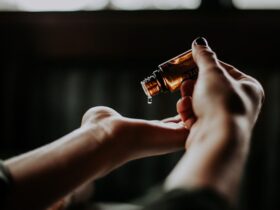If you are planning on having cosmetic surgery, you may be worried about the scarring that can be left after it. What if we said that there are some proven ways that you can reduce and even prevent some scarring after the procedure. While scarring is obviously inevitable, you can minimise the visibility of the scarring with good incision care as well as the following methods of scar prevention. In this article, we will go through some risk factors for scarring after surgery and how to prevent this from happening.
Cause of scarring
When the skin is damaged, there is a going to be a high risk of scarring. An example of this is when you were a child, you may have cut your knee or scraped it that much that you will be left with a scar for the rest of your life. The same goes with surgery, even cosmetic surgery. This is due to the body needing an incision which is cutting through layers of skin. Scarring can occur regardless of the surgeon’s skill, the incision location and the reason for the surgery. If your surgery is performed by a less experienced surgeon, your scarring may be a little more visible.
Risk Factors Of Scarring
There are some risk factors that you can’t control, unfortunately, but by knowing them, you can understand the likelihood of scarring.
Age: When you age, skin biomes thinner and loses its elasticity. This is due to collagen reduction as we age which changes the results of fat layers under your skin. Other age-related risk factors include sun damage, smoking and pollutants. The upside to this is that age spots and freckles can help to conceal scarring.
Race: Some races are more likely to scar than others due to the colour of their skin. An example of this would be if you were of African heritage, you are more than likely to form hypertrophic or keloid scarring which are overgrowths of scar tissue. Generally scarring is thin, and the colour depends on skin tone. Light skin tends to be closer to the original colour whereas darker skin tends to be darker than the surrounding area.
Healing Care
There are some steps during the recovery stage where you can help to reduce scarring. Good incision care is key to minimal scarring after surgery which includes:
Rest: Pending on the procedure you are having will determine how much rest you should have. If your surgeon says to take two weeks off work, then take it. Try not to go back to work after the first week of healing as you will exhaust yourself.
Perform Wound Care: Your surgeon will give you thorough instructions on how to care for your incision. Following these are vital for minimal scarring. Avoid ointments and other remedies unless prescribed as they can hinder results.
Identify Infection Quickly: If you notice any redness or infection, then you should consult with your healthcare provider immediately. If you get an infection, this can dramatically impair the healing and can hinder your scarring results.
Reduce Stress On The Incision: When you have been through any cosmetic procedure like a Mummy makeover, you should avoid any strenuous exercise or lifting until you have recovered. Doing anything like stretches or putting tension on your scarring like driving can hinder results. The stress can pull the incision apart and leave open wounds which will then need more stitches, increasing the risk of scarring.
Avoid Sun Exposure: If you can, avoid exposing your scar to sunlight. If the scar is in a place you can’t hide, sunscreen is recommended after the incision heals properly.
























